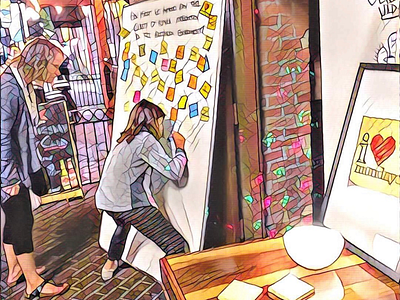I Love Mondays urban design workshops
Case Study: One of the first "I love Mondays" workshops was held in a public square in downtown San Diego. The theme of the workshop was "Designing for Social Equity." Participants included designers, activists, community organizers, and anyone else who was interested in exploring ways to address issues of social inequality in the city.
The workshop began with a series of short presentations on different aspects of social equity and how design can be used to address these issues. This was followed by a group discussion, during which participants shared their own experiences and ideas for addressing social inequality in the city.
After the discussion, the group broke into smaller teams and began working on design concepts. Each team was given a specific challenge related to social equity, such as increasing access to affordable housing or improving public transportation for low-income communities.
Over the course of the day, the teams developed a variety of creative and innovative solutions to these challenges. Some of the ideas included a community-driven housing development project, a rideshare program for low-income residents, and a public art installation highlighting issues of gentrification.
At the end of the day, the teams presented their concepts to the larger group and received feedback from the other participants. Many of the concepts were well received and generated a lot of interest from the community.
Outcomes: The "I love Mondays" workshop was a success in terms of generating ideas and fostering collaboration around wicked design problems. It also helped to raise awareness of the importance of engaging at the civic level to address issues of social inequality in the city.
In the weeks following the workshop, several of the design concepts developed during the event were taken forward and implemented in the community. The community-driven housing development project, for example, was successfully funded and is now underway.
Conclusion: The "I love Mondays" workshop demonstrated the power of participatory design and the value of bringing people together to work collaboratively on wicked design problems. It also showed the potential for design to make a meaningful impact on issues of social equity in the community.





